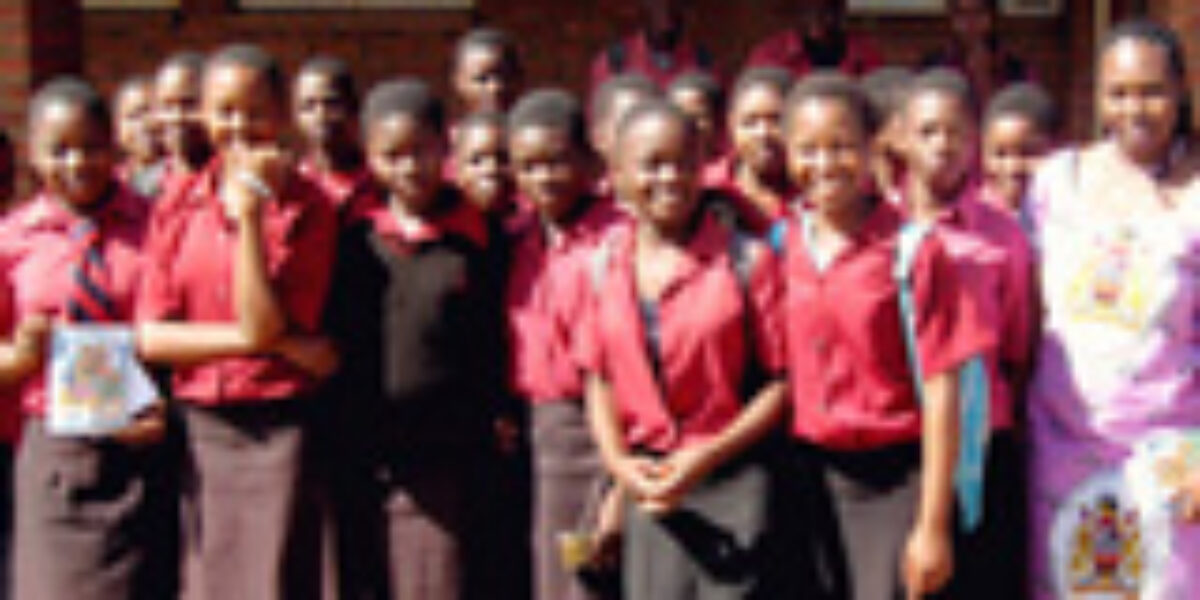
Twelve-year-old Alile carries a basket of food down a dusty road. Two years ago, her father died of AIDS. Now her mother is in the hospital receiving HIV treatment. Every day, Alile walks three miles along this path to feed and bathe her mother. It's a labor of love that prevents her from attending school – the only chance she has to break the cycle of poverty. At night, she returns to her small shack and quietly tries to sleep in the stifling heat. She is alone.
This is the daily reality for a typical child like Alile and more than half a million other children in Malawi, a country with one of the highest HIV/AIDS prevalence rates in Africa. A recent UNICEF report estimated that 930,000 Malawians suffer from the disease, most of them ages 15 to 49.
The consequences are sobering. Many children are orphaned or abandoned. And those who aren't are forced to take on adult roles and provide for ailing parents, aging grandparents and younger siblings. In addition, they can sometimes contract the virus themselves because they're uneducated about how to prevent it.
Rhoda Gathoga describes the situation succinctly. “When [a community] is stripped of breadwinners, it's the children who suffer,” says the research director of Global Scripture Impact, a unit within American Bible Society (ABS) that provides counsel and research to validate, evaluate and increase ministry impact.
Let the Children Come to Me
Jesus said, “Let the children come to me… because the kingdom of heaven belongs to such as these.” (Matthew 19.14, GNT) Following Jesus' example, the Bible Society of Malawi (BSM), with financial backing from ABS, implemented the Take Charge program for youth affected or infected by HIV/AIDS. The program has spread to 17 Malawian secondary schools and now is broadcast on national radio. It helps the children cope with the emotional pain and stigma of HIV/AIDS by talking about their situation with peers and trained adults. And by emphasizing biblically based principles, such as chastity and faithfulness in marriage, it teaches students how to prevent the virus.
The program is making a difference in students' lives, says Rosemary Moyo, head mistress of a secondary school in the country's capital city. “By working in a [Take Charge] group, [the students] stop being isolated,” says Moyo. “They learn that their fellow students are going through the same challenge[s], and they take courage and know what to do when faced…with poverty and HIV/AIDS.”
In a society that avoids public discussion of the disease, Take Charge clubs offer a rare opportunity for children to openly share their struggles and emotions. The program also incorporates Scripture memorization and poetry competitions to help students process their feelings in a healthy way. During meetings, teachers and community leaders emphasize to the students that they're special and worthy in God's eyes.
Through the Take Charge program, BSM reaches out to the broader community. As students learn about prevention and care for HIV/AIDS, they pass the information along to friends, neighbors and family members. Often, student feedback helps BSM identify new ways to minister to those living with or affected by HIV/AIDS. For example, many students in Take Charge clubs shared that HIV-positive relatives were not getting proper nutrition. Consequently, their health was declining. In response, BSM began planning an outreach to provide “hope packs” of food to families affected by the virus.
Hope and a Future
At Take Charge clubs, many at-risk youth like Alile receive the support and emotional attention they need. “I now believe that I am a success because God has his hand on me,” says Anastasia Gedengwa, a Take Charge student at Soche Hill Secondary School in the southern region of Malawi.
Although the battle against HIV/AIDS in Malawi is far from over, children in the program now have a chance at living a positive life whether affected or infected by the virus. And for the first time, they can begin to grasp God's promise in Isaiah: “Do not be afraid – I am with you… I will make you strong and help you.” (Isaiah 41.10, GNT)





